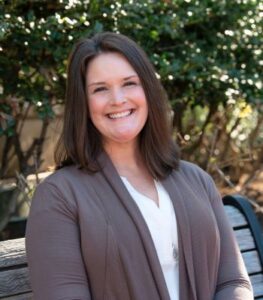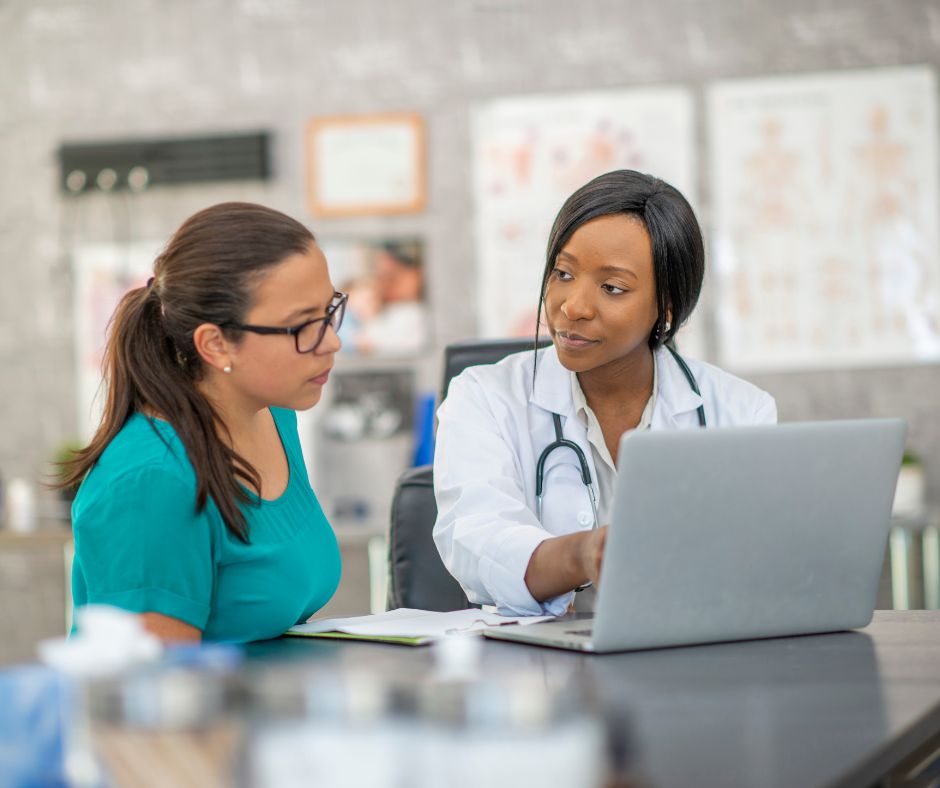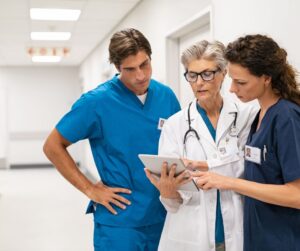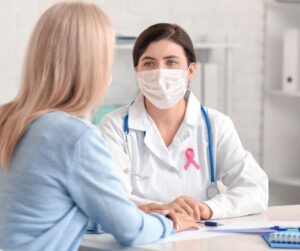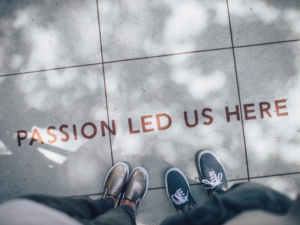Kelly Goodwin, NP
It was the middle of the night Saturday, March 4, 2000, and I had been lying, not sleeping, on the mattress my sisters and I had dragged onto the floor of my parents’ room nearly 2 weeks prior. I heard my mother whisper, “He’s gone.” My father had turned 55 years old just 2 days prior. He had fallen asleep mid-morning on his birthday, nearly a year after being diagnosed with locally advanced lung cancer and never woke up again. In the hour prior to his passing, he had managed to roll over and put his arm around my mother and sing a line from one of his favorite Patsy Cline songs.
I was a junior in college at the time pursuing a degree in the history of science while completing pre-med coursework. I had always loved science, math, and problem-solving. I loved talking to people, and I loved being part of a team. My father was a police officer and a U.S. Navy veteran and instilled in me his lifelong commitment to service to the community. After my father’s diagnosis and death, I was sad, confused, and angry. Medicine, I thought, had failed my father, and I decided I wouldn’t, couldn’t, shouldn’t be a part of it.
After graduation I tried to find purpose and enjoyment in a number of administrative positions without success. Time doesn’t heal all wounds. As the years passed, I had more questions about how and why this happened to my father and my family and if we had missed opportunities to do more.
I ultimately decided to take a position in clinical research in the cancer center of a large academic medical center for the challenge it posed and the clarity and healing I hoped it might provide. Would I be comfortable walking into a hospital every day? How would I interact with sick patients and scared families?
Within the first week I met a young man in his 20s with a newly diagnosed metastatic gastroesophageal junction cancer beginning treatment on a clinical trial. He had a supportive family, a new job as a teacher, and a lot of hope for the future. He had a complete response on his first set of restaging scans but developed new pain and gastrointestinal symptoms over the next 2 months with rapid progression of his cancer. His disease progressed quickly through 3 additional lines of treatment, and he ultimately transitioned to home hospice.
Through the generosity of staff, we were able to surprise him and his father with tickets to the home opener of the 2004 Boston Red Sox World Series. He passed away days later, and while I was so sad for him and his family, I felt so proud of the team I had joined. The oncology team provided and shared in his hope; we celebrated good news; we agonized over the bad news; we educated on the disease process, and we helped empower him to define the memories he wanted to create and the legacy he wanted to leave. We helped to ease his physical, emotional, and existential suffering in dying when living longer wasn’t possible.
The knowledge I had gained about cancer helped me to understand that we had done all we could to treat my father’s disease—a desire to live and a commitment to “fight” aren’t a care plan. I found peace in the recognition that my father’s team took the journey with us. Every patient, every disease, every day is different as an oncology provider, and I choose every day to keep moving forward on these journeys with my patients and their families.
Kelly Goodwin, NP, is a nurse practitioner in the Center for Thoracic Cancers at Massachusetts General Hospital in Boston, and she is co-director of ambulatory oncology advanced practice providers for the Boston and Newton Wellesley Hospital disease centers. She is a member of The Oncology Connection’s Editorial Advisory Board.
